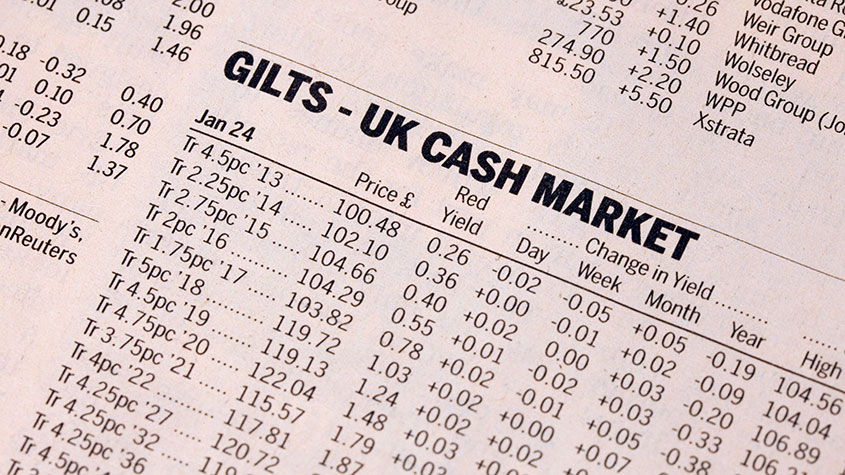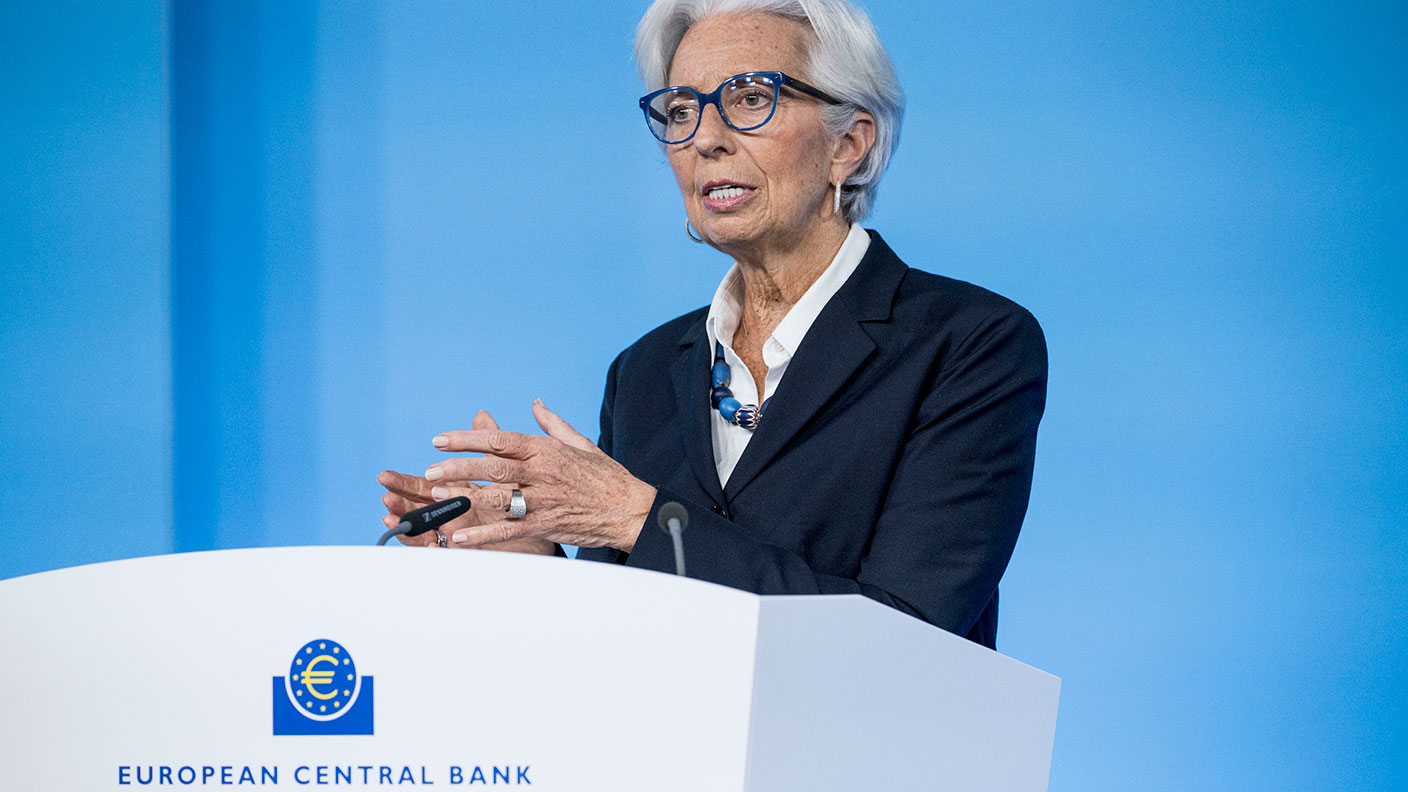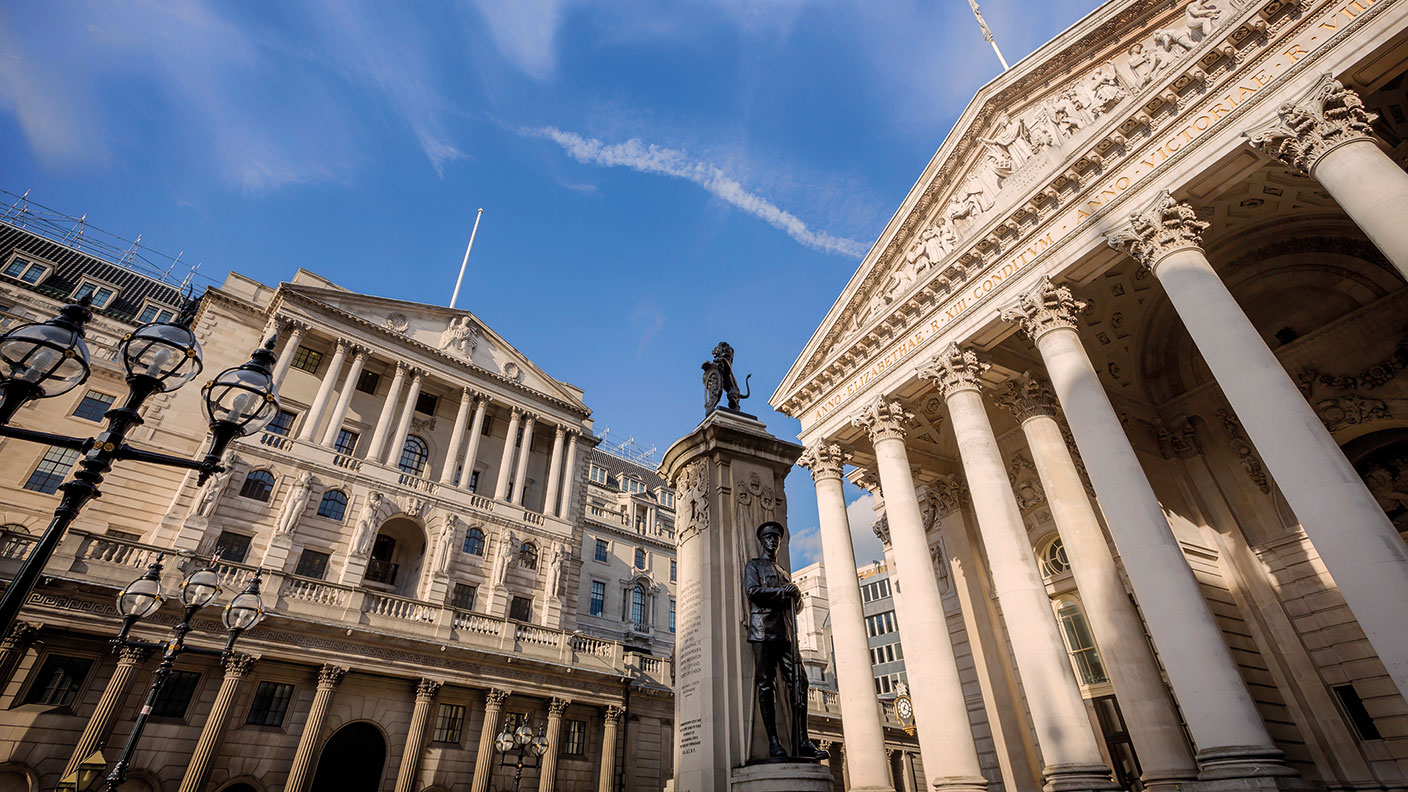How to short government bonds
Government bond yields have been falling for 30 years. So how do you short government bonds? Simon Caufield explains.
Get the latest financial news, insights and expert analysis from our award-winning MoneyWeek team, to help you understand what really matters when it comes to your finances.
You are now subscribed
Your newsletter sign-up was successful
Want to add more newsletters?

Twice daily
MoneyWeek
Get the latest financial news, insights and expert analysis from our award-winning MoneyWeek team, to help you understand what really matters when it comes to your finances.

Four times a week
Look After My Bills
Sign up to our free money-saving newsletter, filled with the latest news and expert advice to help you find the best tips and deals for managing your bills. Start saving today!
Gold's latest bull market began around ten years ago. But government bonds have been on a tear for far longer indeed, yields have been falling (so prices have been rising) for 30 years. Today, investors are buying them for fear of deflation.
And central banks have been buying as part of quantitative easing (QE). As a result, yields are now even lower than in March 2009, when we thought the world might be ending.
Some economists argue that yields will go lower still. They point to Japan where deflation has sent ten-year government bond yields below 1%. But Japan is a case apart. It has run a huge trade surplus for decades, whereas the US and UK have trade deficits. In effect, it has been lending to the West to help us buy its exports. Also, Japanese government debt is held within Japan mostly by pension funds. That's not the case for the US or UK.
MoneyWeek
Subscribe to MoneyWeek today and get your first six magazine issues absolutely FREE

Sign up to Money Morning
Don't miss the latest investment and personal finances news, market analysis, plus money-saving tips with our free twice-daily newsletter
Don't miss the latest investment and personal finances news, market analysis, plus money-saving tips with our free twice-daily newsletter
At its last meeting, the Fed hinted that it could soon launch 'QE2'. Some members of the Bank of England (BoE) Monetary Policy Committee think we need more QE here too.
It took some time for me to understand QE. But when I did, I was even more convinced of the case for shorting gilts. Suppose you sell your gilts to the BoE. It will open an account for you at the Bank. When you hand over your gilt, it makes a computer entry that shows your account holds the cash. This is money out of thin air. The BoE pays you no interest, because it wants you to spend the money, or use it to start a business, or buy stocks or bonds to finance existing businesses.
See also
But imagine if we could all do the same as the BoE. We could use Monopoly money to buy gilts. It wouldn't take long before the bonds were worth about the same as the Monopoly money. Either bond investors will get sick of buying Western government bonds with depreciating money and dump them, or all this QE will lead to inflation, which in turn makes bonds (with their fixed payments) unattractive.
The best way to invest
But shorting bonds isn't easy. For one, you're responsible for paying the yield. So you'll lose 3% a year on a ten-year gilt if the price does not change. And unless you've got perfect timing which I don't have prices could fall further in the short run. So how do you short government bonds without losing money while you wait? I recommend the Baring Absolute Return Global Bond Trust, which invests in government bonds and currencies.
The fund has three objectives:
To return 4% per year more than three-month sterling LIBOR (a key interbank interest rate) on average over a full economic cycle.
To produce a positive return in any calendar year.
To have a low correlation with the major bond and currency indices.
Investment manager Colin Harte believes the economy will follow one of three scenarios, and he's deployed a mix of positions to make money in all three. Here they are, along with the return Harte expects to make.
Scenario 1 'US Recovery'
Western bond yields all rise and the dollar gains against the yen and euro: +23.1%.
Scenario 2: 'Anaemic Global Growth'
Bond yields fall somewhat; the dollar slides against major currencies. Commodity-backed currencies in Australia, Norway and Canada also fall: +8.7%.
Scenario 3: 'US Credibility Crisis'
Yields on long-dated UK and US bonds rise sharply. The US dollar and sterling fall against the euro, yen and commodity-backed currencies: +22.1%.
In summary, you should gain 22% if bond yields rise, while you're unlikely to lose money if bond yields fall. How is Harte positioned? He is short of government bonds in the UK, US and Europe. He is short the US dollar against the Chinese yuan, Korean won and Taiwanese dollar. And he is short the Japanese yen against the pound, dollar and Swiss franc.
Harte has delivered positive returns in each of the last five calendar years (up 1%. 4.2%, 6.5%, 1.9% and 14.8% respectively). So far this year (to 31 August), the fund is down 7.7%. I think Harte was surprised that yields fell below the levels of March 2009. But you are not buying this fund for what it has done in the past, but what it will do in future.
Obviously, we're making a trade-off here. If you know exactly when bond yields will rise, you'll make more money with a derivative. But I don't. So I'm happy to give up some upside gain to get rid of most of the downside risk. If you buy the fund using a fund supermarket, such as Hargreaves Lansdown, the 5% initial fee is cut to zero. The total expense ratio is 1.82%.
Simon Caufield writes the True Value newsletter, which sets out his plan to grow your wealth at an average of 15% a year. True Value is open to new subscribers, but only until 10 Dec. Visit www.moneyweek.com/tv.aspx ; or call 020-7633 3780. (True Value is a regulated product issued by MoneyWeek Ltd.)
Get the latest financial news, insights and expert analysis from our award-winning MoneyWeek team, to help you understand what really matters when it comes to your finances.
Simon Caufield started out as an engineer and has an MA in engineering from Cambridge. This was followed by an MBA from the London Business School.
After graduating, Simon worked his way up to become a Management Consultant for banks and insurance companies. This gave him the chance to see the city from the inside.
In 2001, Simon started his own company to develop software designed to price banking services, such as loans and deposits. After growing the company to 100 employees, he went on to sell this in 2007, looking for his next challenge.
Also during 2007, Simon ‘sacked’ his fund managers and took complete control over his investments. Now he devotes all his time to investing and is an angel investor to help start-up companies. He has built up a reputable 20 years in the industry.
Simon writes his own investment newsletter – True Value. This follows the strategy he established in 2007 and is based on assets that are priced way below their true value. He scours the worldwide markets for equities, bonds and alternative investments to find opportunities that fit his conservative and contrarian approach.
-
 Should you buy an active ETF?
Should you buy an active ETF?ETFs are often mischaracterised as passive products, but they can be a convenient way to add active management to your portfolio
-
 Power up your pension before 5 April – easy ways to save before the tax year end
Power up your pension before 5 April – easy ways to save before the tax year endWith the end of the tax year looming, pension savers currently have a window to review and maximise what’s going into their retirement funds – we look at how
-
 Why Scotland's proposed government bonds are a terrible investment
Why Scotland's proposed government bonds are a terrible investmentOpinion Politicians in Scotland pushing for “kilts” think it will strengthen the case for independence and boost financial credibility. It's more likely to backfire
-
 How have central banks evolved in the last century – and are they still fit for purpose?
How have central banks evolved in the last century – and are they still fit for purpose?The rise to power and dominance of the central banks has been a key theme in MoneyWeek in its 25 years. Has their rule been benign?
-
 Is Britain heading for a big debt crisis?
Is Britain heading for a big debt crisis?Opinion Things are not yet as bad as some reports have claimed. But they sure aren’t rosy either, says Julian Jessop
-
 Retail bond paying 8.25% launches – should you buy it?
Retail bond paying 8.25% launches – should you buy it?A new bond from alternative property lender LendInvest looks eye-catching but how do retail bonds work, and what are the risks?
-
 Is it time to buy Gilts?
Is it time to buy Gilts?Advice Gilts offer a higher yield than most savings accounts and could be an attractive alternative for those with a large lump sum to invest.
-
 What the return of the bond vigilantes means for investors
What the return of the bond vigilantes means for investorsAnalysis The US Federal Reserve is dancing to the tune of the bond vigilantes, says Max King. Here’s what that means for stockmarket investors, the economy, and you.
-
 Nature is healing – government bond yields are turning positive again
Nature is healing – government bond yields are turning positive againAnalysis Negative bond yields are finally coming to an end as central banks change tack. But can the markets cope? John Stepek looks at what might come next.
-
 The taper tantrum begins
The taper tantrum beginsNews Markets had so far shrugged off the prospect of central-bank monetary tightening. But not any more.